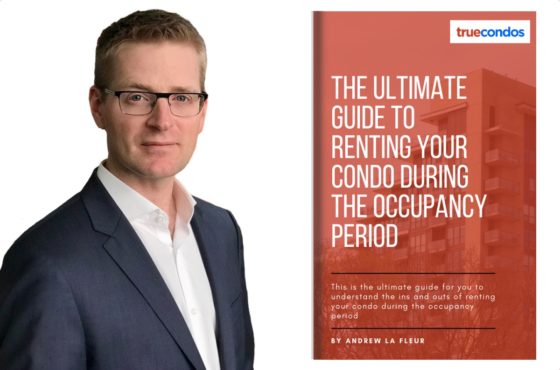Toronto: Ghost City

If you are a condo news junkie like me, you probably have been enjoying the past few months because the level of interest in the Toronto condo market appears to be at an all time high. The big boys of Canadian media: The Toronto Star, Globe and Mail, and National Post all run stories about the Toronto Condo market just about every single day.
Yesterday Scotiabank released an alarming statement claiming that up to 25% of Toronto condos are empty and that we were in danger of becoming a “Ghost City”. Several of the major media outlets picked up on this juicy quote and ran articles on the subject.
Let’s look a closer look at some of the buzz words and phrases you may have seen used in these articles that are designed to cause a reaction in readers, to generate fear, and ultimately to get more eyeballs looking at their newspapers and websites:
“25% of condo units are sold but sitting vacant…other analysts say the figure may be too low”. Hmmm…One in four condos in Toronto is empty eh? Well, that would certainly explain why it’s so hard to find a rental apartment in this town (vacancy rates consistently around 1%), too many landlords who hate making money! This statement was so ridiculous it was laughable by anyone who has any exposure to the real estate market in Toronto, but this was the crux of these articles and the quote came from a report out of Scotiabank, who were quoting a figure they thought was from CMHC. CMHC denied they ever said that 25% of condos were empty and Scotiabank retracted their statement but the damage was already done and the newspapers were happy because they got their ten thousand clicks they wanted and they had already moved on to the next story.
“This is the ghost city phenomenon.” I like how the writers use quotes like this as if to imply that this is a well-known, widely understood concept and it is something that we’ve all feared would happen and now it finally has. You know, the ghost city phenomenon. Toronto=Chernobyl.
“Shades of Miami at the height of it’s collapsed condo bubble in 2007”. When in doubt, make reference to the mothership of fear-inducing condo bubble prophecy: Miami. Miami is the poster child for the worst case scenario in condo markets. By simply putting the word “Miami” in the article the writer guarantees they will get a reaction from their readers, and newspapers are in the reaction-generating business.
In conclusion, newspaper editors and writers are very smart people and they know what sells and what doesn’t. As a reader and particularly as a real estate investor, you need to learn how to cut through the rhetoric and get the truth on what is really happening in the market.
And now for something completely different: “Canada Housing Bubble Talk Dismissed”.
Questions or comments? Contact me.



